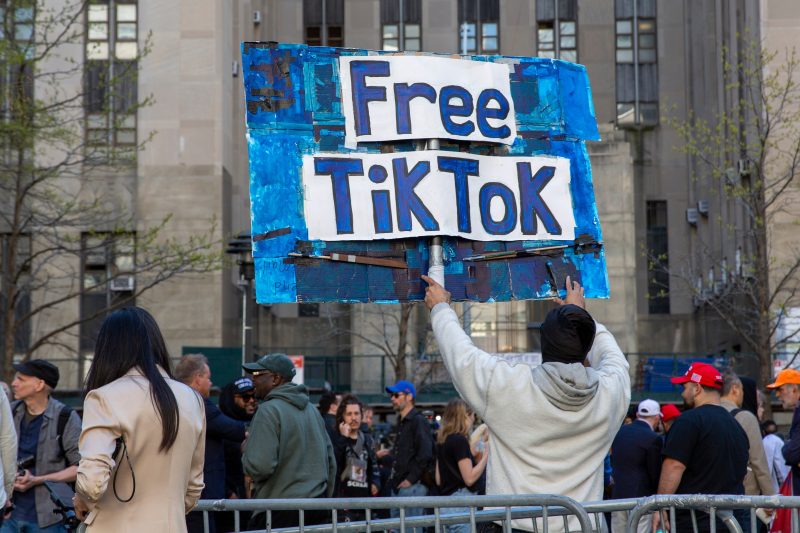In a surprising turn of events, former President Donald Trump has made a significant reversal on his stance towards TikTok, shifting blame onto President Joe Biden for allegedly wanting to ban the popular social media platform. This latest development has once again thrust the topic of government regulation of social media platforms into the spotlight, adding a new layer of complexity to the ongoing debate.
The saga of TikTok and its tangled relationship with the U.S. government dates back to the Trump administration’s initial threats to ban the app over national security concerns. Trump’s accusatory rhetoric towards TikTok, which he claimed was a potential threat due to its Chinese ownership by ByteDance, resulted in a series of legal battles and executive orders aimed at forcing the app’s sale to an American company or facing a ban in the U.S.
However, since leaving office, Trump seems to have shifted his tune, now framing the issue as a Democratic agenda to ban TikTok rather than a bipartisan concern over national security risks. By blaming President Biden for allegedly seeking to ban the platform, Trump has injected a new element of political partisanship into the debate, further complicating an already contentious issue.
This latest move by Trump has reignited debates over the role of government in regulating social media platforms and the potential impact of such actions on free speech and competition in the tech industry. Critics argue that government intervention in the form of bans or forced sales sets a dangerous precedent that could be abused for political gain, potentially limiting access to information and stifling innovation.
On the other hand, proponents of government regulation of social media platforms contend that it is necessary to protect national security interests and ensure user privacy in an increasingly interconnected digital landscape. The ongoing discussions surrounding TikTok serve as a microcosm of the broader tensions between technological advancement, national security concerns, and individual freedoms in the digital age.
As the debate over TikTok and its potential regulation continues to evolve, it remains to be seen how the Biden administration will address the issue and whether there will be bipartisan cooperation or further political polarization on the matter. One thing is certain: the fate of TikTok and the broader implications for social media regulation will continue to be hotly contested terrain for policymakers, tech companies, and users alike.
